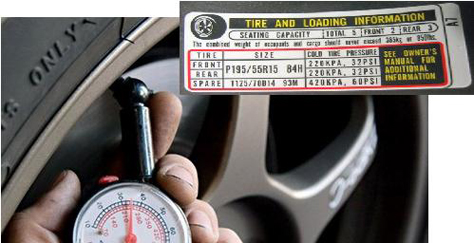 |
Vehicle Maintenance
Keeping your vehicle in top operating condition will save you fuel and money, reduce your long-term maintenance costs and minimize harmful exhaust emissions. A well-maintained vehicle is also more reliable and could be worth more when you want to sell it.
- Read the owner's manual carefully to become familiar with your vehicle's maintenance schedule and requirements. Maintenance regimes vary widely from one vehicle to another – the manufacturer of your vehicle knows best.
- It's usually best to leave the servicing of your vehicle in the hands of trained automotive professionals. They have the knowledge and tools to diagnose and correct problems and to put you on the road to safe, fuel-efficient driving.
- When purchasing motor oil, look for a brand that is rated as being "Energy Conserving." Using the lowest multigrade of oil recommended in your owner's manual can improve the fuel efficiency of the engine, particularly when starting it cold.
- Virtually all of your vehicle's mechanical systems can affect fuel efficiency if not properly maintained. Follow the manufacturer's recommendations for checking the engine, cooling and ignition system, brakes, drivetrain and emission-control system.
- Operating a vehicle with just one tire under-inflated by 8 psi (56 kPa) can reduce the life of the tire by 15 000 kilometres and increase the vehicle's fuel consumption by 4 percent. For improved fuel efficiency and enhanced safety, give your tires the attention they need.
- Your tires need special attention during winter. Cold temperatures decrease the air pressure in tires, which adds to the rolling resistance caused by snow and slush. Measure tire pressure regularly, especially after a sharp drop in temperature.
- Remove roof racks when not in use as well as any unnecessary weight in your vehicle that will cause your vehicle to use more fuel.
- A poorly maintained vehicle can boost fuel consumption by up to 15 percent and greenhouse gas emissions by even more.
- Almost all gasoline vehicles on the road today are fuel-injected. A recent study showed that replacing a clogged air filter on a vehicle with a fuel-injected gasoline engine does not improve fuel economy. However the study also showed that a clogged air filter may reduce acceleration performance.
- Under-inflated tires are estimated to cost Canadian light-duty vehicle owners almost 643 million litres of fuel annually. At $0.79 per litre for regular unleaded gasoline, that amounts to more than $500 million a year in wasted fuel.
- Neglecting to replace worn-out oil results in poor engine performance, higher fuel consumption and possibly severe engine damage.
